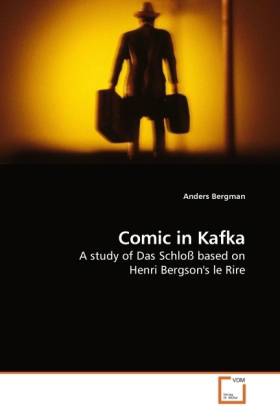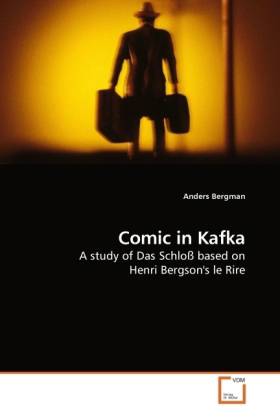
Je cadeautjes zeker op tijd in huis hebben voor de feestdagen? Kom langs in onze winkels en vind het perfecte geschenk!
- Afhalen na 1 uur in een winkel met voorraad
- Gratis thuislevering in België vanaf € 30
- Ruim aanbod met 7 miljoen producten
Je cadeautjes zeker op tijd in huis hebben voor de feestdagen? Kom langs in onze winkels en vind het perfecte geschenk!
- Afhalen na 1 uur in een winkel met voorraad
- Gratis thuislevering in België vanaf € 30
- Ruim aanbod met 7 miljoen producten
Zoeken
Comic in Kafka
A study of Das Schloß based on Henri Bergson's le Rire
Anders Bergman
Paperback | Engels
€ 48,45
+ 96 punten
Omschrijving
Are there comic elements in the writings of Franz Kafka? Most people associate Kafka with a nightmarish world devoid of feelings and understanding, full of anonymity and bureaucracy - what is actually called Kafkaesque in the English language. But when Kafka read his works aloud for his friends, they were all laughing madly, and Kafka himself was laughing so much he could hardly read any further. This monograph examines to what extent Kafka's writings could be called comic, if the comic elements provoke a kind-hearted laughter or a vicious one, what different kinds of comedy there is and how one could best define this comedy. The examples are mainly taken from Kafka's last (and by many regarded as his best) novel, Das Schloß, and as a basis for the definition of comedy the author has chosen Nobel prize winner Henri Bergson's study le Rire.
Specificaties
Betrokkenen
- Auteur(s):
- Uitgeverij:
Inhoud
- Aantal bladzijden:
- 84
- Taal:
- Engels
Eigenschappen
- Productcode (EAN):
- 9783639217407
- Uitvoering:
- Paperback
- Afmetingen:
- 150 mm x 220 mm
- Gewicht:
- 128 g

Alleen bij Standaard Boekhandel
+ 96 punten op je klantenkaart van Standaard Boekhandel
Beoordelingen
We publiceren alleen reviews die voldoen aan de voorwaarden voor reviews. Bekijk onze voorwaarden voor reviews.









